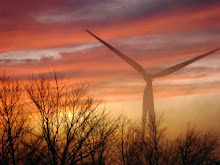 With a population of about 100 people, Punakaiki is a small place located on the west coast of New Zealand's south island. As I mentioned in an earlier post, the "town" is no more than a few shops and an information center on the area. It's located on the edge of NZ's Paparoa National Park, most well-known for it's pancake rocks and blowholes. The area is covered in vegetation. Staring out the window right now, there isn't one part of the cliffside I see that is bare. It's beyond gorgeous.
With a population of about 100 people, Punakaiki is a small place located on the west coast of New Zealand's south island. As I mentioned in an earlier post, the "town" is no more than a few shops and an information center on the area. It's located on the edge of NZ's Paparoa National Park, most well-known for it's pancake rocks and blowholes. The area is covered in vegetation. Staring out the window right now, there isn't one part of the cliffside I see that is bare. It's beyond gorgeous.With all the unfortunate things happening to our environment right now, it's a bit of relief to know that there are still places, like Punakaiki, that remain, by their looks anyway, untouched. The New Zealand Department of Conservation owns 85% of the land on the west coast of the south island, most of which is being conserved, like what we are helping with over the next few weeks. But this place isn't without it's problems. If it was, I wouldn't be here right now volunteering.
Our project is coastal habitat restoration. A mere 5 minutes down the road is the breeding site of the Black Petrel, or Procellaria parkinsoni. It is extremely significant because this area on NZ's south island is the only breeding site in the world for this breed of bird, and I get the chance to help it. It's not on the endangered species list, but if it's habitat is not restored, there is no saying whether this species could become apart of that list at some point. It's invigorating to be apart of a project that is protecting the habitat of something so sensitive to the impacts we are having on the environment.
I also found out that the black petrel is extremely sensitive to bright lights, so if the land we are working on was not conserved and used for commercial uses, the pertrel would not even be able to find its nesting site. Their landing on the site is quite interesting, as we are told they kind of "crash-land" as they come in, a reason the NZ brush and dense rainforest is vital to their survival and breeding. Fear not little crazy black bird, ISV is here to help!

No comments:
Post a Comment